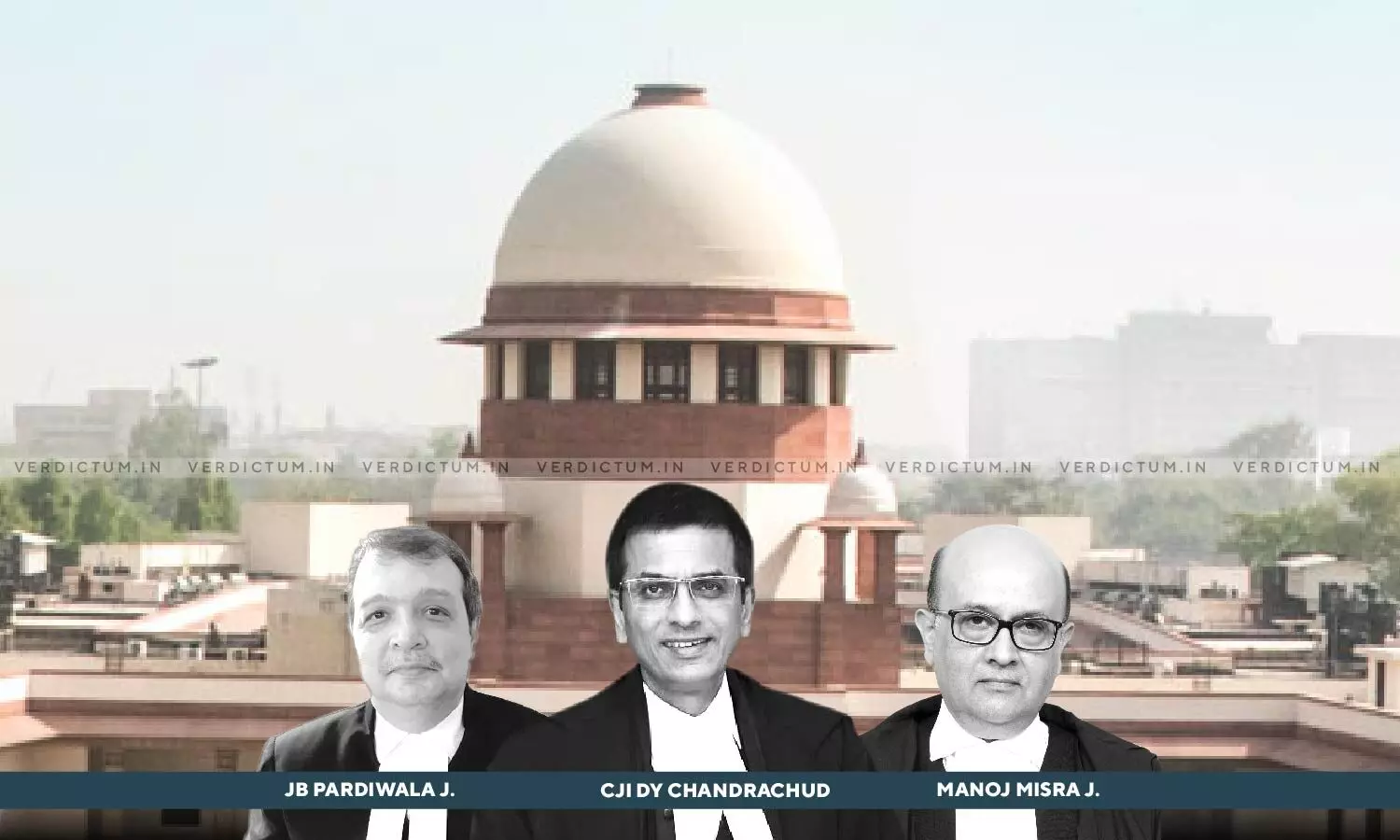
'Beyond Realm Of Judicial Review': SC Refuses To Direct Amendment Of 2006 Delimitation Notification For Reserving Legislative Assembly Seats For Limboo-Tamang Scheduled Tribe
 |
|The Supreme Court refused to direct the Delimitation Commission and Election Commission of India to amend the 2006 notification issued under Delimitation Act for reserving Legislative Assembly seats for Limboo and Tamang scheduled tribe.
The Court recommended that the Union Government take appropriate steps to ensure that provisions of Article 330 and Article 332 of the Constitution of India are duly implemented.
The petitioners prayed that the Delimitation Commission amend the 2006 Notification to reserve seats for Limboo and Tamang Tribes under Article 332. Alternatively, they prayed that the Election Commission use its powers under Section 9(1)(aa) to modify the 2008 Order in line with changes made by the Delimitation Commission. Alternatively, the petitioners prayed that the Election Commission correct both the 2006 and 2008 Orders, reserving seats for Limboo and Tamang Tribes as per constitutional provisions.
Holding that directing a legislative amendment is beyond the domain of judicial review, the Bench of Chief Justice Dhananjaya Y Chandrachud, Justice JB Pardiwala and Justice Manoj Misra observed that, "it is for the Union Government to take recourse to the powers under the Delimitation Act 2002 for the purpose of ensuring that the provisions of Articles 330 and 332 are duly implemented. The Central Government should take a decision with all reasonable dispatch, in accordance with law."
In the 2001 census, Scheduled Tribes constituted 5.50% and 20.60% of the total populations of West Bengal and Sikkim, respectively. The Delimitation Commission, formed by the Union Government, included the Limboo and Tamang communities as Scheduled Tribes in 2002, effective from January 7, 2003. The delimitation exercise in 2008 resulted in reserved seats for Scheduled Tribes in the House of the People and State Legislative Assembly.
Despite demands for reservation adjustments post the 2002 Amendment Act, the delimitation proposal for Sikkim in 2006 did not consider the newly designated Limboo-Tamang Tribes. The 2008 Delimitation Order, consolidating Commission decisions, was contested, claiming it failed to account for the Amending Act of 2002. In 2012, the Supreme Court directed the Election Commission to ensure proportional representation for Scheduled Tribes.
Several Ordinances aimed at readjusting representation were promulgated in 2013, but none became law. In 2018, the Ministry of Home Affairs proposed increasing seats in Sikkim's Legislative Assembly for Limboo and Tamang Tribes, but no further actions were taken.
The Election Commission, West Bengal, and Sikkim stated limitations in making changes without enabling legislation. West Bengal mentioned 6% reservation based on the 2011 census, while Sikkim expressed repeated requests for reservation for Limboo and Tamang Tribes without successful implementation.
Observing that the Delimitation Commission completed its exercise almost fifteen years ago, the Court observed that, "The manner in which this exercise would have to be determined within the purview of the Delimitation Act 2002..., the exercise would require legislative amendments, particularly having regard to the provisions of the First and Second Schedules to the RP Act. Directing a legislative amendment is beyond the domain of judicial review."
Accordingly, the petitions were disposed.
Cause Title: Public Interest Committee for Scheduling Specific Areas & Anr. vs Union of India
Click here to read/download the Judgment